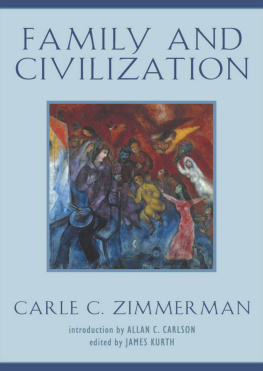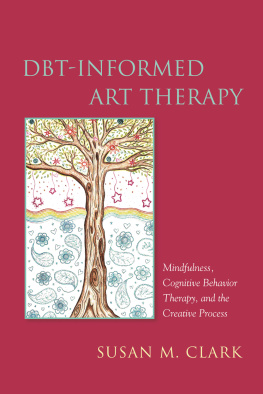Integrating Gender and Culture in Family Therapy Training
Integrating Gender and Culture in Family Therapy Training has been co-published simultaneously as Journal of Feminist Family Therapy, Volume 12, Numbers 2/3 and 4 2001.
Integrating Gender and Culture in Family Therapy Training
Toni Schindler Zimmerman
Editor
Integrating Gender and Culture in Family Therapy Training has been co-published simultaneously as Journal of Feminist Family Therapy, Volume 12, Numbers 2/3 and 4 2001.
Integrating Gender and Culture in Family Therapy Training has been co-published simultaneously as Journal of Feminist Family Therapy, Volume 12, Numbers 2/3 and 4 2001.
2001 by The Haworth Press, Inc. All rights reserved. No part of this work may be reproduced or utilized in any form or by any means, electronic or mechanical, including photocopying, microfilm and recording, or by any information storage and retrieval system, without permission in writing from the publisher.
The development, preparation, and publication of this work has been undertaken with great care. However, the publisher, employees, editors, and agents of The Haworth Press and all imprints of The Haworth Press, Inc., including The Haworth Medical Press and Pharmaceutical Products Press, are not responsible for any errors contained herein or for consequences that may ensue from use of materials or information contained in this work. Opinions expressed by the author(s) are not necessarily those of The Haworth Press, Inc.
First published by:
The Haworth Press, Inc., 10 Alice Street, Binghamton, NY 13904-1580 USA
This edition published 2012 by Routledge:
Routledge
Taylor & Francis Group
711 Third Avenue
New York, NY 10017
Routledge
Taylor & Francis Group
2 Park Square, Milton Park
Abingdon, Oxon OX14 4RN
Cover design by Thomas J. Mayshock Jr.
Library of Congress Cataloging-in-Publication Data
Integrating gender and culture in family therapy training / Toni Schindler Zimmerman, editor,
p. cm.
Co-published simultaneously as Journal of feminist family therapy, volume 12, numbers 2/3 and 4, 2001.
Includes bibliographical references and index.
ISBN 0-7890-1353-3 (alk. paper) ISBN 0-7890-1354-1 (alk. paper)
1. Family psychotherapy. 2. Feminist therapy. 3. Psychiatry. Transcultural. 4. Cultural psychiatry. I. Zimmerman, Toni Schindler.
RC488.5..14975 2001
Integrating Gender and Culture in Family Therapy Training
CONTENTS
Tal Harris
Laurie B. Moret
Jerry Gale
Karen L. Kampmeyer
David MacPhee
Toni Schindler Zimmerman
Shelley A. Haddock
Rhea V.Almeida
Miguel Hernandez
ABOUT THE EDITOR
Toni Schindler Zimmerman, PhD, is Associate Professor at Colorado State University. She has been the Director of the Marriage and Family Therapy Program at CSU for ten years. This program is strong in both research training and clinical skill training. The CSU MFT Program has been widely recognized for its tremendous efforts for integrating gender and culture in family therapy training. Toni Schindler Zimmerman has been a leader in gender and family therapy integration. In 1999, the MFT Program that she directs was given the AAMFT National Training Award. In 1997, she was awarded the Ruth Strang Research Award by the National Association for Women in Education. Also, in 1997, she was honored as the Colorado Marriage and Family Therapist of the Year by the CAMFT. Currently, she is editor for Journal of Feminist Family Therapy and has over 50 publications in the area of Marriage and Family Therapy. Her research, teaching and outreach efforts are in the areas of gender and culture integration in marriage and family therapy, work and family balance issues in family therapy, and gender and parenting. She currently has a grant from the Alfred P. Sloan Foundation for $206,000.00 studying successful balance of work and family. She is considered an outstanding teacher and trainer by her students and colleagues.
Preface: Integrating Gender and Culture in Family Therapy Training
In the past twenty-five years or so, the field of family therapy has undergone significant changes. Prior to this time, therapists and trainers did not consider gender, race, ethnicity, class, sexual orientation, and spirituality as relevant to their work with clients. Today, many trainers and therapists consider these constructs to be organizing principles of society, peoples lives and relationships. Rather than treating these principles as peripheral or special topics, many family therapists fully integrate gender and culture into every therapy and supervision session, course, and interaction with students and colleagues. Although a full integration has not been realized by all trainers and therapists, we have much to celebrate.
These accomplishments have been realized through meaningful and difficult dialogue, in which persons in the field began to recognize and bring themselves and one another through the fog of sexism, racism, homophobia, and classism. As the fog continues to lift for each of us (e.g., clients, trainees, and ourselves), we are able to not only see the dynamics of power and oppression; we can also see how our own privilege and fear blind us. Our own transformation and effectiveness as trainers and therapists are realized whenin the face of our own blind spotswe take responsibility, are humbled, and continue to participate in this profound and often difficult dialogue. We continue to change.
Although there are many reasons to be optimistic, there is still much work to be done. This work will require all of our voices and a commitment to remain in this necessary conversation. Each of these contributions attempts to continue this dialogue as it pertains to training and the socialization of the next generation of family therapists. This collection is dedicated to the many courageous and wise women and allied menthe lighthouses in the fogwho have been the beacons in our search for social justice.
Toni Schindler Zimmerman
[Haworth co-indexing entry note]: Preface. Zimmerman, Toni Schindler. Co-published simultaneously in Journal of Feminist Family Therapy (The Haworth Press, Inc.) Vol. 12, No. 2/3, 2001, pp. xv-xvi; and: Integrating Gender and Culture in Family Therapy Training (ed: Toni Schindler Zimmerman) The Haworth Press, Inc., 2001, pp. xiii-xiv. Single or multiple copies of this article are available for a fee from The Haworth Document Delivery Service [1-800-342-9678, 9:00 a.m. - 5:00 p.m. (EST). E-mail address: ].
The Weave of Gender and Culture in the Tapestry of a Family Therapy Training Program: Promoting Social Justice in the Practice of Family Therapy
Toni Schindler Zimmerman
Shelley A. Haddock
Toni Schindler Zimmerman, PhD, is Associate Professor in Human Development & Family Studies, and Director of the Marriage & Family Therapy Program at Colorado State University. Shelley A. Haddock, MS, is Lecturer and Clinical Supervisor in the Marriage & Family Therapy Program, and Interim Director of the Marriage & Family Therapy Clinic at Colorado State University. The CSU Marriage & Family Therapy Program received the 1999 Training Award from the American Association for Marriage & Family Therapy in recognition of its strengths in training which include integrating gender and culture throughout the program.














